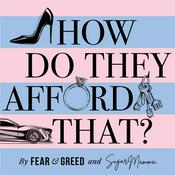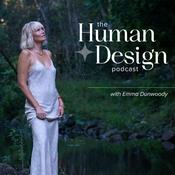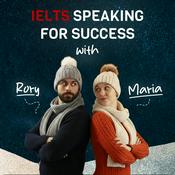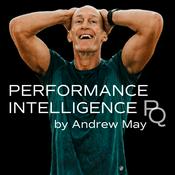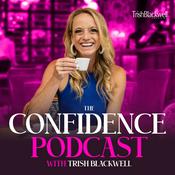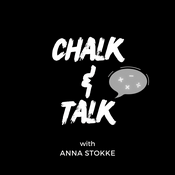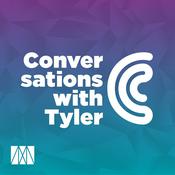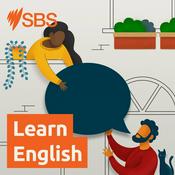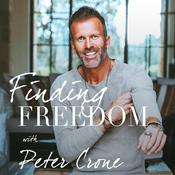19 episodes
- Rather than reacting to misbehaviour, what if we approached it with the same planning and intention we bring to teaching literacy and numeracy in the classroom?
In this episode, behaviour expert Dr Russ Fox and school leader Karina Stocker explain why behaviour should be treated as a skill - explicitly taught, consistently reinforced, and supported through clear expectations and structured routines. From embedding multi-tiered support systems (MTSS) to practical coaching and playbooks, they share how teachers and schools can build consistency, strengthen culture and support every learner.
Whether you’re working within a whole-school framework or applying these principles in your own classroom, this episode offers grounded, practical strategies to help reduce the guesswork and make behaviour support sustainable.
In this episode, you’ll learn:
Why behaviour should be taught, not managed - and what that looks like in practice.
The key principles of a multi-tiered support system (MTSS).
How school-wide consistency improves both learning and behaviour.
Practical strategies teachers can use when working without whole-school frameworks.
What real support for teachers looks like - and why they shouldn’t go it alone
Topics we explore:
(00:00) Introduction to Positive Behaviour Support
(02:16) Effective Approach to Behaviour Support
(02:55) Building Whole-School Systems and Consistency
(05:28) Support for Teacher Success
(07:12) Understanding Tiered Support Systems
(09:54) Building Relationships Through Behaviour Teaching
(11:05) Behaviour Is a Curriculum That Can Be Taught
(14:19) Setting Up Environments for Learner Success
(18:25) Helpful Environmental Starting Points
(20:57) Managing Teacher Workload and Practice
(24:37) Building Systems That Support Teachers
(30:43) Instructional and Daily Routines for Success
(32:46) Using Extrinsic Supports to Build Intrinsic Motivation
(33:32) Final Reflections on Teaching Behaviour
Resources:
Positive Classroom Management Strategies - Victorian Department of Education
US Center on Positive Behavioral Interventions and Supports (PBIS) Guide on Supporting and Responding to Student’s Social, Emotional, and Behavioral Needs: Evidence-Based Practices for Educators (2025)
The Australian Education Research Organisation (AERO) resources on classroom management practices,
Monash Teachspace Article: How to develop effective behaviour support plans in schools
Research paper: Using Data to Support Educators’ Implementation of Positive Classroom Behavior Support (PCBS) Practices (2019)
Research paper: Between the lines: Integrating the science of reading and the science of behavior to improve reading outcomes for Australian children (2024)
Working paper: Addressing the gaps in teacher preparation: A one-size-fits-all approach does not exist
Special Guests:
Dr Russ Fox
Lecturer, School of Educational Psychology & Counselling
Faculty of Education, Monash University
Connect with Russ on LinkedIn
Karina Stocker
Multi-Tiered Systems of Support Leader,
Docklands Primary School, Melbourne
Educational Consultant, Teacher and PhD Candidate
Connect with Karina on LinkedIn and X
If you’re enjoying Let’s Talk Teaching, don’t forget to subscribe, rate and review! You can follow us on Instagram, X and Facebook, and share your thoughts on the show by using the hashtag #letstalkteachingpodcast.
If you’re interested in hearing more about the short courses, undergraduate and postgraduate study options that Monash Education offers, please visit our website.
We are grateful for the support of Monash University’s Faculty of Education in producing this podcast. - Play is more than just fun - it’s a key driver of creativity, problem-solving and social connection in early learning. Yet as children progress through school, opportunities for play often shrink - taking with them an essential part of how students learn, reason and make sense of the world.
In this episode, early years researcher Dr Leigh Disney, and teacher and PhD Candidate Hong Chen share practical, developmentally appropriate strategies for keeping play alive across year levels. From imaginative play corners to structured problem-solving, they explore how teachers can balance curriculum demands with creativity - and why it’s so important in supporting literacy, numeracy, identity and emotional growth.
At a time when adaptability, creativity and critical thinking are increasingly vital in our rapidly changing world, play remains one of the most powerful tools teachers can use to prepare students for the future.
In this episode, you’ll learn:
Why play-based learning supports academic and emotional growth.
How play changes across developmental stages—and why it still matters.
What imaginative learning looks like in real classrooms.
Strategies for embedding play without compromising curriculum goals.
Why play can help students build identity, agency and connection.
Topics we explore:
(00:00) Introduction to Play in Learning
(02:09) What Is Play?
(04:17) Imaginative Play in Early Childhood
(06:17) Linking Play to Learning
(09:06) Play to Support Learning from Kindergarten to School
(14:40) Conceptual Play Worlds and Problem Solving
(17:08) Collective Play and Building Connection
(19:07) Fostering Imagination in Play Over the Years
(21:45) Chaos and Problem Solving in Imaginative Play
(25:04) Imagination in Upper Primary
(26:55) Where Teachers Can Start with Play
(30:00) Balancing Curriculum and Play
(31:45) Final Thoughts on Purposeful Play
Resources:
Conceptual PlayWorlds
An evidence-based model developed by Professor Marilyn Fleer for embedding imagination and inquiry-based learning into early years education.
Monash Education Course Options
Learn more about postgraduate study options in early years and primary education.
Special Guests:
Dr Leigh Disney
Early Years Lecturer, School of Educational Psychology & Counselling
Faculty of Education, Monash University
Connect with Leigh on LinkedIn
Hong Chen
PhD Candidate & Early Childhood Teacher
Connect with Hong on LinkedIn, Instagram and X
If you’re enjoying Let’s Talk Teaching, don’t forget to subscribe, rate and review! You can follow us on Instagram, X and Facebook, and share your thoughts on the show by using the hashtag #letstalkteachingpodcast.
If you’re interested in hearing more about the short courses, undergraduate and postgraduate study options that Monash Education offers, please visit our website.
We are grateful for the support of Monash University’s Faculty of Education in producing this podcast. - For many teachers, games have long been a classroom staple - but their impact goes far beyond surface-level engagement. When designed and used with intent, game-based learning can transform mathematical thinking, improve classroom dynamics, and create lasting connections to content.
In this episode, Dr James Russo shares what makes a truly effective maths game, unpacking six key principles from his research and the importance of 'games into investigations'. Primary school teacher Matt Hale brings the classroom perspective, highlighting the joy, depth and unexpected power of games that promote strategic thinking, collaborative dialogue and differentiated learning.
You’ll also hear how games like Fact or Fiction, Multiple Mysteries, and Choc Chip Cookies are sparking genuine mathematical thinking - and why the simplicity of cards, dice and paper often wins over digital solutions.
In this episode, you’ll learn:
The difference between gamification and game-based learning - and why it matters.
What the six principles of effective maths games are and how to apply them.
How game mechanics support strategic thinking, reflection and investigation.
Why low-tech games often outperform digital tools in learning and engagement.
The role of games in assessment, student agency and classroom culture.
Topics we explore:
(00:00) Introduction to Game-Based Learning
(02:00) Game-Based Learning vs Gamification
(03:27) Games That Built Deeper Thinking
(04:33) Stickiness and Replayability
(05:51) Favourite Maths Games
(09:47) Six Principles of Effective Maths Games
(11:04) Turning Games into Investigations
(13:02) Deepening Learning by Changing Rules
(15:03) Games for Assessment
(17:12) Sneaky Learning and Student Confidence
(18:05) Managing Competition in the Classroom
(19:47) Six Key Principles Explained
(26:40) Love Maths Website and Simple Games
(27:52) Non-Digital vs. Digital Games
(31:38) New International Research into Games
(33:36) How to Start Using Games in Teaching
Resources:
Love Maths by Michael Minas
Free, simple maths games for use at both home and at school.
SURF Maths
A flexible, visual framework to support mental maths instruction. SURF helps teachers personalise strategy use, build consistency across classrooms, and strengthen students' mathematical thinking and language.
Maths 300
Subscription-based maths lesson library, supporting inquiry through rich tasks and games.
Wheel of Names
A free random selector tool that was designed for choosing winners or names.
Related research:
Unpacking game mechanics: Five types of whole-class mathematical games
Transforming mathematical games into investigations
Five principles of educationally rich mathematical games
Special Guests:
Dr James Russo
Senior Lecturer, School of Curriculum, Teaching and Inclusive Education
Faculty of Education, Monash University
Matt Hale
Teacher
St Patrick’s Primary School, Mentone
If you’re enjoying Let’s Talk Teaching, don’t forget to subscribe, rate and review! You can follow us on Instagram, X and Facebook, and share your thoughts on the show by using the hashtag #letstalkteachingpodcast.
If you’re interested in hearing more about the short courses, undergraduate and postgraduate study options that Monash Education offers, please visit our website.
We are grateful for the support of Monash University’s Faculty of Education in producing this podcast. - While concerns about AI replacing teachers persist, the reality is far more complex—and filled with opportunity. This technology shift calls for a reimagining of the teacher’s role, where professional judgement, leadership and curiosity take centre stage.
In this episode, Dr Jo Blannin unpacks what generative AI actually is, why it’s more than just a tech tool, and how teachers can lead its meaningful and ethical use in schools. Secondary School teacher Miguel Regalo shares how he and his colleagues are using AI on the ground - from supporting lesson planning and differentiation, to parent communication and professional reflection.
You’ll also hear how AI tools like ATLAS are being used in initial teacher education, and why the challenge ahead isn’t about keeping up with the technology - but shifting the mindset around how it’s used in, and out of, the classroom.
In this episode, you’ll learn:
What generative AI actually is - and how it works in simple terms.
How teachers and students are already using AI in practical ways.
The ethical concerns around privacy, bias and student data.
How AI is shaping assessment, learning design and workload.
Where to start if you’re AI curious but not sure where to begin.
Topics we explore:
(00:00) Introduction to Generative AI
(01:57) Big Questions about AI
(02:52) What is Generative AI?
(06:20) Using AI in the Classroom
(07:36) Ethics, Privacy and Data Safety
(12:18) How Teachers Are Using AI
(15:16) Understanding and Adopting AI
(18:02) Effective Leadership in School Change
(19:00) How Students Are Using AI
(19:49) Rethinking Assessment with AI
(26:08) Atlas Project: Real-World Teaching Practice
(29:41) Where to Start if You’re AI Curious
Resources:
ATLAS (Automated Teaching and Learning at Scale)
An AI-powered simulation tool used for professional development, including roleplays for parent-teacher interviews, mentoring conversations and behaviour support.
Monash University - AI Short Course
Explore Artificial Intelligence courses and delve into the dynamic realm of possibilities.
Supporting Teachers and Teaching in the Age of Artificial Intelligence - Research Project (Jo Blannin)
This project aims to investigate teacher capabilities to respond to, and engage with, Artificial Intelligence (AI) tools in their classrooms and online teaching.
Special Guests:
Associate Professor Jo Blannin
Senior Lecturer, School of Curriculum, Teaching and Inclusive Education
Faculty of Education, Monash University
Connect with Jo on LinkedIn
Miguel Regalo
Professional Growth & eLearning Leader
Mac.Robertson Girls’ High School
Connect with Miguel on LinkedIn
If you’re enjoying Let’s Talk Teaching, don’t forget to subscribe, rate and review! You can follow us on Instagram, X and Facebook, and share your thoughts on the show by using the hashtag #letstalkteachingpodcast.
If you’re interested in hearing more about the short courses, undergraduate and postgraduate study options that Monash Education offers, please visit our website.
We are grateful for the support of Monash University’s Faculty of Education in producing this podcast. - With teacher shortages and shifting school demands, many early-career teachers are stepping into leadership roles within their first few years in the profession. However, with limited preparation and support, some find themselves burning out - or leaving teaching altogether.
In this episode, teacher James Desmond reflects on his own fast-tracked journey into leadership, how it affected his relationship with his work - and what helped him rediscover the joy of teaching again. Dr Fiona Longmuir brings a research perspective, sharing insights on why so many teachers are leaving mid-career, the systemic changes schools need to consider, and how we can better support meaningful, lasting progression in education.
This is an honest and practical conversation for any teaching navigating their next step - without losing yourself along the way.
In this episode, you’ll learn:
What it’s really like to move into leadership early in your teaching career.
The signs it may be time to pause, recalibrate or step back to protect your wellbeing.
How school systems and structures shape the experience of career growth.
What meaningful support looks like - from colleagues, leaders and school culture.
How to approach your next career step with clarity, confidence and long-term perspective.
Topics we explore:
(00:00) Introduction to Career Progression and Leadership
(02:13) James' First Year in Leadership
(04:08) Dr Fiona Longmuir - Fast Tracking Careers
(05:11) The First Five Years
(08:24) Skills for Early Leadership
(09:07) Instability and Workforce Challenges
(11:57) Mid-Career Attrition and Burnout
(14:35) Building Belonging for Teachers
(16:10) Time, Money and Respect
(19:49) Taking Charge of Career Progression
(22:14) Finding Mentors and Networks
(24:49) Rediscovering the Joy of Teaching
(25:41) The Future of the Teaching Workforce
Resources:
Monash Education - Professional and Continuing Education (PACE) Short Courses
Explore flexible short courses and programs to support your leadership journey at every stage of your teaching career.
Monash Education - Education Workforce for the Future
A Monash-led research initiative focused on improving teacher retention, leadership and system-wide reform.
Special Guests:
Dr Fiona Longmuir
Senior Lecturer, School of Education, Culture & Society
Faculty of Education, Monash University
Co-Leader of the Education Workforce, Future Impact Lab
Connect with Fiona on LinkedIn or Bluesky
James Desmond
History and Politics Secondary School Teacher
Government School, Melbourne
Connect with James on LinkedIn
If you’re enjoying Let’s Talk Teaching, don’t forget to subscribe, rate and review! You can follow us on Instagram, X and Facebook, and share your thoughts on the show by using the hashtag #letstalkteachingpodcast.
If you’re interested in hearing more about the short courses, undergraduate and postgraduate study options that Monash Education offers, please visit our website.
We are grateful for the support of Monash University’s Faculty of Education in producing this podcast.
More Education podcasts
Trending Education podcasts
About Let’s Talk Teaching
Conversations with teachers, for teachers. Join Associate Professor Rebecca Cooper, former teacher turned education academic, as she invites teachers and Monash University Alumni with different educational backgrounds, experiences and learnings to share their insights on a number of topics that teachers in Australian classrooms are facing today.
Podcast websiteListen to Let’s Talk Teaching, The Tony Robbins Podcast and many other podcasts from around the world with the radio.net app
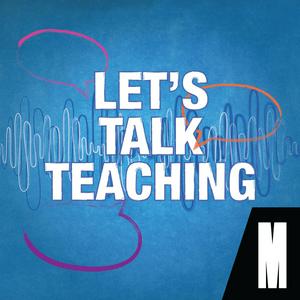
Get the free radio.net app
- Stations and podcasts to bookmark
- Stream via Wi-Fi or Bluetooth
- Supports Carplay & Android Auto
- Many other app features
Get the free radio.net app
- Stations and podcasts to bookmark
- Stream via Wi-Fi or Bluetooth
- Supports Carplay & Android Auto
- Many other app features


Let’s Talk Teaching
Scan code,
download the app,
start listening.
download the app,
start listening.








